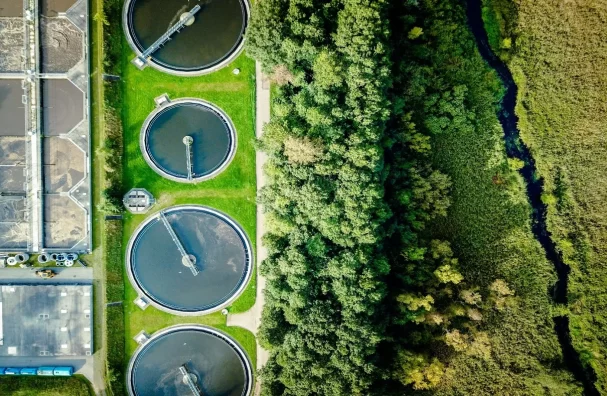
The future of wastewater treatment could be greener than we think. Transitioning to eco-friendly wastewater treatment methods has the potential to significantly reduce carbon emissions and save billions of dollars.
In a landmark study, researchers at Colorado State University demonstrated that shifting to green wastewater infrastructure could result in savings of approximately $15.6bn and reduce CO2-equivalent emissions by nearly 30 million tons over four decades.
The study, published in Nature Communications Earth and Environment, is the first of its kind to delve into the economic trade-offs of transitioning to green infrastructure and technology solutions that transcend conventional grey-water treatment practices.
The research was based on data collected from over 22,000 facilities. It offers comprehensive baseline metrics and explores the correlation among emissions, costs, and water treatment capabilities, providing valuable insights for utility operators and decision-makers.
Braden Limb, the first author of the paper and a PhD student in the Department of Systems Engineering, said, “These findings draw a line in the sand that shows the potential for adopting green wastewater approaches both in terms of money saved and total emissions reduced.”
Traditional point-source water treatment facilities, such as sewage plants, remove harmful nutrients like nitrogen and phosphorus before releasing water back into circulation. This system, overseen by the Environmental Protection Agency (EPA), is known as grey infrastructure.
However, with future regulation standards likely to become more stringent, these facilities may require more power and consequently produce more emissions to meet the new thresholds.
Presently, wastewater treatment facilities account for 2% of all energy use in the US and 45 million tons of CO2 emissions. Another major source of freshwater contamination in the US is non-point sources such as fertilizer runoff from agriculture entering rivers, wildfires, and urban development.
Instead of constructing more grey infrastructure treatment facilities to address these increasing sources of contamination, the paper suggests exploring green wastewater approaches financed through carbon markets that can tackle both types simultaneously.
Carbon financing is a mechanism aimed at mitigating climate change by incentivising activities that reduce or sequester emissions. Companies voluntarily buy ‘credits’ on an open market that represent a reduction or removal of carbon from the atmosphere. These credits offset the institution’s emissions as it strives to reach sustainability goals.
The researchers suggest that leveraging carbon markets could change some financial incentives farmers have around water treatment and impacts from their activities. They found that using these markets could generate $679m annually in revenue, presenting an opportunity to motivate green infrastructure solutions within water quality trading programmes to meet regulated standards.
Mechanical Engineering Professor Jason Quinn, who worked on the study, said the findings have some limitations but that this was an important first step to model both the problem and opportunity available now.
By bringing these market mechanisms together, we can capitalise on a window of opportunity to accelerate the improvement of America’s rivers as we transition to a renewable energy and restored watershed future.
